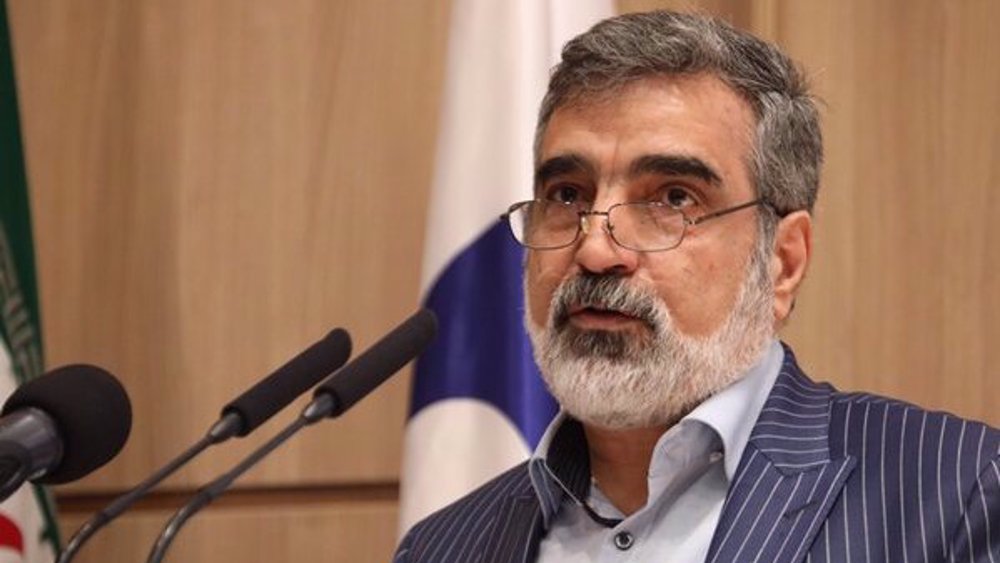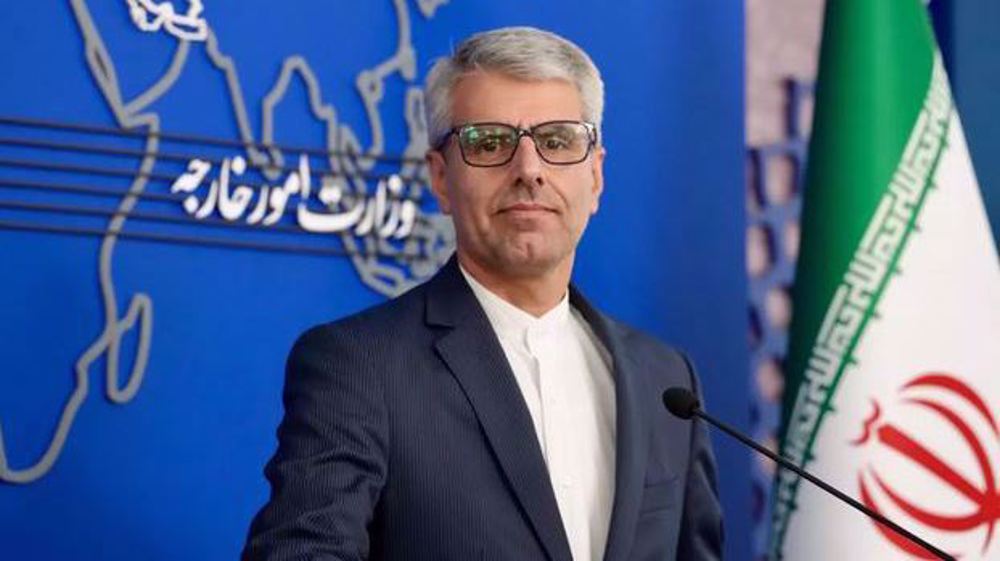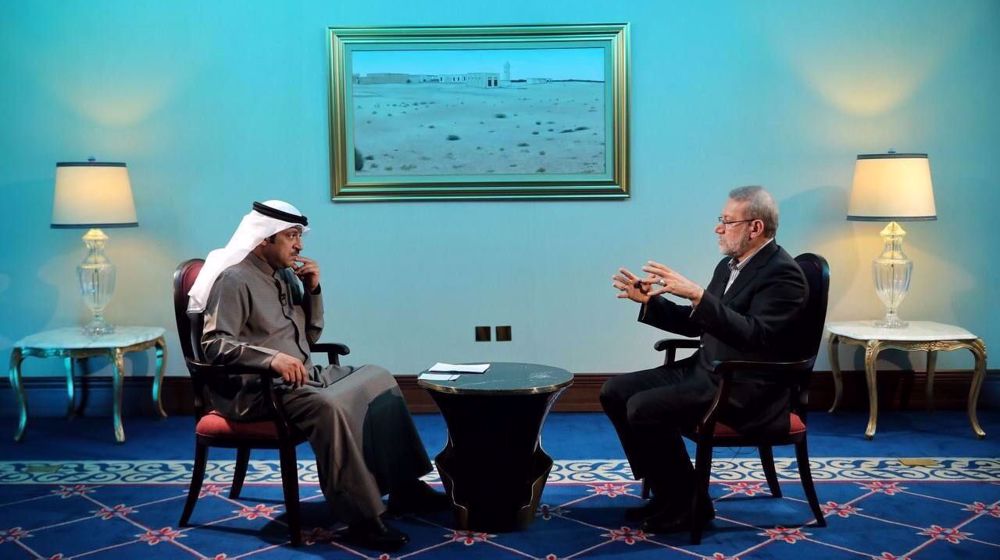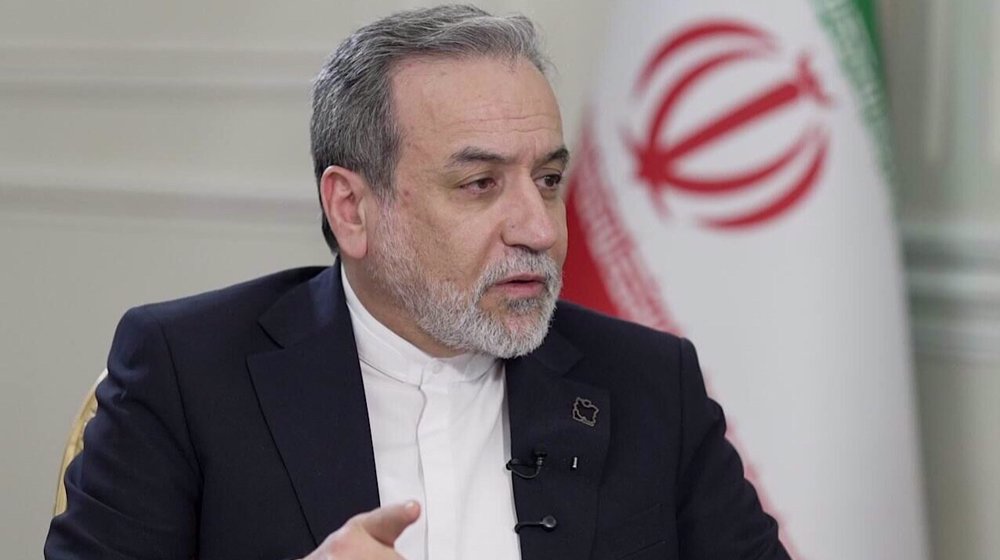Iran's nuclear agency suspects ‘Israel role’ in both Natanz incident, senior scientist assassination
The Atomic Energy Organization of Iran (AEOI), the country’s nuclear agency, suspects Israeli involvement in both a July incident at Iran’s Natanz nuclear facility, and the recent assassination of a prominent Iranian nuclear scientist near Tehran.
Speaking on Saturday, AEOI Spokesman Behrouz Kamalvandi said the Islamic Republic’s enemies had gone beyond just trying to tarnish its nuclear activities.
“Their footprint is clearly visible in various incidents,” he noted.
“Concerning the Natanz incident, it could be said that its perpetrators are the same as those behind the recent incident. It looks like the Zionist regime [of Israel] has a role in these issues,” Kamalvandi said.
Natanz is a uranium enrichment center located in the city of the same name in Iran’s central Isfahan Province. On July 2, the facility was targeted in an incident that caused material damage to one of its inactive sheds that was located in an open area.
The Iranian expert, Mohsen Fakhrizadeh, who headed the Iranian Defense Ministry’s Organization of Defensive Innovation and Research, was targeted on Friday in a multi-pronged attack involving at least one explosion and small fire by a number of assailants in Absard city of Tehran Province’s Damavand County.
No party has yet claimed responsibility for the atrocity.
However, the United States and Israel have, throughout the entire lifespan of Iran’s nuclear energy program, been changelessly trying to demonize it. The duo that are each other’s strongest allies, have worked tirelessly to restrict Iran’s nuclear work through international bodies or coercive and brutal measures.
Tel Aviv has assassinated several Iranian scientists in the past.
The occupying regime, which is the Middle East’s sole possessor of nuclear weapons, persuaded Washington to leave a historic nuclear accord between Tehran and world powers in 2018 and restore the sanctions that the agreement had lifted.
This is while the Islamic Republic has invariably provided unstinting cooperation with the International Atomic Energy Agency. The United Nations’ nuclear agency has, by its own admission, subjected the country’s nuclear work to the most extensive and recurrent examinations throughout history.
“Whatever is a component of our points of strength today is the enemy’s target,” Kamalvandi noted, saying the country’s ill-wishers were seeking to frustrate it from making progress.
However, he expressed confidence that Iran’s adversaries “will not get anywhere.” “This is a tough and rocky terrain [for us], but we will, God willing, reach [our desired] results with conviction and by relying on divine power.”
The official advised, therefore, that the country “double its efforts” on the industrial arena and “deliver a decisive response” to such acts of sabotage in the security sphere too.
Following the assassination, Leader of the Islamic Revolution Ayatollah Seyyed Ali Khamenei called on Iranian experts to preserve the scientific and technical legacy of the nuclear physicist, and ordered punishment of his assassins.
President Hassan Rouhani also warned of a plot hatched by Israel to incite chaos in the region, vowing that Tehran would respond to the assassination at the proper time.
Iran rights body: West better not legitimize terrorism
Meanwhile, the Iranian Judiciary’s High Council for Human Rights urged international bodies to lend the Islamic Republic the assistance that it requires to consign the perpetrators of the assassination to justice.
In a statement, the Council denounced the atrocity as outright violation of the humankind’s right to exist on the one hand and the country’s right to have access to science and technology and progress on the other.
In parallel with the US-led Western antagonism towards the Islamic Republic, “the terrorist Zionists, who have a heavy and dark criminal and murderous record, act as executioners,” trying to deny Iran its right to progress by eliminating its elites, the Council said.
It denounced silence on the part of international and Western organizations, states, and officials, who lay claim to fighting terrorism, in this regard as effectively “legitimizing terrorism.”
To avoid lending such acts of terrorism any legitimacy, the bodies, governments, and statesmen are, therefore, urged to unequivocally condemn the crime and help out the Islamic Republic in its pursuit of those behind the atrocity, the Council stated.
IRGC Quds Force: Iran uniting all forces to avenge Fakhrizadeh’s blood
Brigadier General Esmail Qa'ani, commander of the Quds Force of Iran's Islamic Revolution Guards Corps (IRGC), meanwhile, asserted that the country would be uniting all its defense forces towards the goal of avenging Fakhrizadeh’s assassination.
“We will ally ourselves with all the forces, who defend the Islamic homeland, to avenge the blood of this dear martyr and all other martyrs by confronting the benighted terrorists and their overlords,” he said.
Qa’ani also vowed that such atrocities would by no means disincentivize the country in its goal to enhance its capabilities.
Israeli producer of anti-Iran propaganda series ‘Tehran’ dies in Greece
Diplomacy and deterrence: Iran focused on reaching nuclear deal – without compromise
British Museum faces backlash for eliminating references to ‘Palestine' from displays
Global outage hits X users: Thousands report access issues
US warship seizes second Venezuelan oil tanker in Indian Ocean
VIDEO | IRGC Navy holds 'Smart Control of Strait of Hormuz' military drills
Explainer: Jaam-e Jam 1 – Iran’s giant leap into geostationary orbit and a new broadcasting era
Iran says entered talks with US with 'result-oriented approach'













 This makes it easy to access the Press TV website
This makes it easy to access the Press TV website